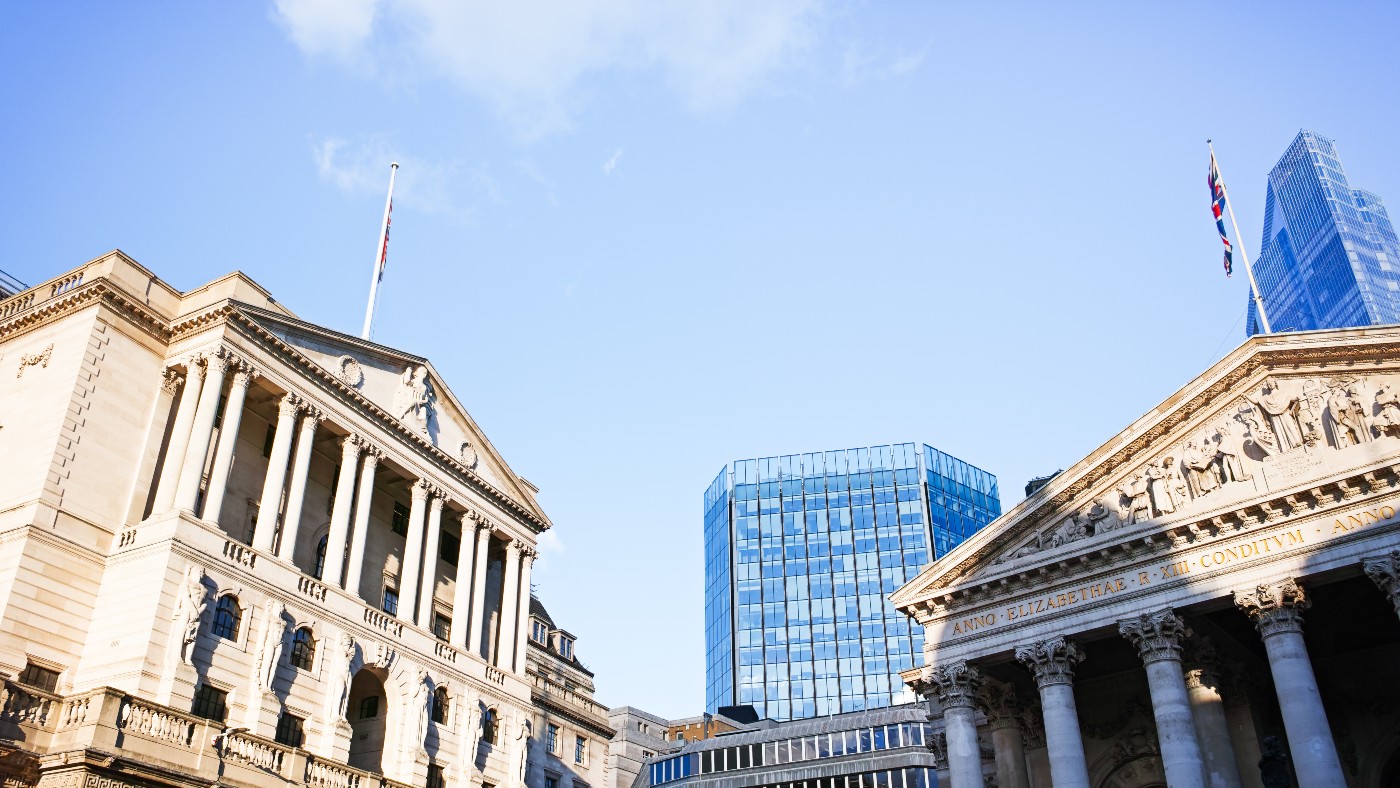How safe are your savings in the bank?
The Financial Services Compensation Scheme protects up to £120,000 per person for each 'authorised institution' or banking group

A free daily email with the biggest news stories of the day – and the best features from TheWeek.com
You are now subscribed
Your newsletter sign-up was successful
There may be uncertainty about the direction of interest rates, but savers can at least have some confidence when it comes to the safety of their cash.
It can be many people’s “worst nightmare”, said Rest Less. You spend years saving “only for a financial firm to go bust, taking your hard-earned savings with it”. But fortunately, there are financial protections in place.
Those who have money with a regulated bank or building society in a product such as a current account or savings account will have up to £120,000 of their money protected if the provider goes bust.
The Week
Escape your echo chamber. Get the facts behind the news, plus analysis from multiple perspectives.

Sign up for The Week's Free Newsletters
From our morning news briefing to a weekly Good News Newsletter, get the best of The Week delivered directly to your inbox.
From our morning news briefing to a weekly Good News Newsletter, get the best of The Week delivered directly to your inbox.
In this scenario, said MoneyHelper, compensation would be paid to people “who end up out of pocket”.
Are savings safe in UK banks?
Bank collapses may be rare, said MoneyWeek, “but they do happen”.
During the 2007 Northern Rock crisis, John Stepek said on Bloomberg, the “over-extended” former building society was hit by “an actual real-life, Mary Poppins-style, queues-on-the-pedestrian-precinct, run”.
Back then, up to £31,700 of each customer's money was protected under the Financial Services Compensation Scheme (FSCS). But this level was subsequently more than doubled, to £85,000, and increased to £120,000 for cash in December 2025.
A free daily email with the biggest news stories of the day – and the best features from TheWeek.com
How FSCS protection works
The FSCS was set up in 2001, under the Financial Services and Markets Act “to cover people's savings in the event that a bank were to go bust”, said MoneySavingExpert. In “simple terms”, if a bank “were to fail”, the statutory body aims to return any savings up to £120,000 to each customer within seven working days.
Banks pay a levy to the Financial Conduct Authority (FCA) to help fund the FSCS, which covers all UK-regulated current accounts and savings accounts.
The scheme can protect investments such as a stocks and shares ISA, but the limits haven’t altered for this type of asset, with coverage of up to £85,000. This also only applies if the provider goes bust and not if your portfolio falls in value.
You may be able to claim, said Forbes Advisor, if you “lose money” because a regulated adviser “recommended a mortgage that wasn't right for you”.
There are also “certain circumstances” where customers could be covered for more than the FSCS-outlined limits, said MoneyWeek. Protection for “temporary high balances” includes money resulting from a house sale or inheritance, and is worth up to £1.4 million for six months.
How to check if your money is safe
The FSCS has a protection checker that lists which providers are covered by the scheme.
This protection is per bank (or building society, or credit union), so it’s a “good idea”, said Royal London’s Sarah Pennells in the Daily Mirror, to spread your money between different brands “so all your savings are protected”.
But "be aware that some banking groups have multiple brands and one banking licence", said Stepek for Bloomberg. So if you have more than £120,000 with two banks – such as HSBC and first direct – that are owned by the same institution with just one regulatory authorisation, you're only covered for £120,000 in total.
Which? also pointed to this “important caveat”, and has a tool to check “who owns who in the savings market”. Having a joint bank account means you’re “doubling your coverage”, added the consumer watchdog, as the FSCS protection is per individual.
Nervous savers might also consider putting their money into a National Savings and Investment (NS&I) account. The bank is backed by the government and “every penny” paid in is protected by the Treasury.
Marc Shoffman is an NCTJ-qualified award-winning freelance journalist, specialising in business, property and personal finance. He has a BA in multimedia journalism from Bournemouth University and a master’s in financial journalism from City University, London. His career began at FT Business trade publication Financial Adviser, during the 2008 banking crash. In 2013, he moved to MailOnline’s personal finance section This is Money, where he covered topics ranging from mortgages and pensions to investments and even a bit of Bitcoin. Since going freelance in 2016, his work has appeared in MoneyWeek, The Times, The Mail on Sunday and on the i news site.